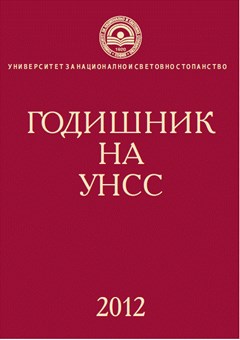Управление на човешките ресурси: политики за ресурс или потенциал за развитие и социален прогрес
Author: Катя Владимирова
Human Resource Management: Policies on Resource or Potential for Development and Social Progress
Katya Vladimirova
Abstract
В студията съвременното управление на човешките ресурси в България се поставя не толкова от гледна точка на съществуващите количествени ограничения, предопределени от демографското развитие и високата емиграция на работната сила, а от гледище на неизползваните възможности за увеличаване на количеството и качеството на този фактор за икономическо развитие и благоденствие. Значителен човешки ресурс и потенциал в продължение на повече от две десетилетия е извън работната сила, не е включен в създаването на блага и социална сигурност, а заетите се използват непълноценно по една или друга причина. Не само, че не се използва целият ресурс от възможности за труд, с който разполага държавата и всяка организация, но много по-голямо значение придобива фактът, че не се използва потенциалът на различните индивиди, богатството и възможностите, които носят и които могат да дадат в голяма степен, ако със съответните публични и фирмени политики се създаде възможност за включване в действие на този потенциал.
Необходима е промяна на ориентацията и съдържанието на политиките към човешките ресурси – от по-добро използване на ресурса, към изграждане и използване на потенциал за действие. За последното голяма роля може да има създаването на повече възможности за избор на всеки индивид и – съответно, различията между тях да се разглеждат като потенциал за създаване на добавена стойност. Приемането на такава концепция би отхвърлило или силно ограничило използването на остатъчния принцип в разпределението на финансовите ресурси и би увеличило вниманието към онези социални политики, които допринасят за икономическия растеж и за цялостния прогрес на обществото. Дори и в условията на икономическа и финансова криза или именно поради това – за благоприятния и по-бърз изход от нея.
Abstract
The study reflects on contemporary human resource management in Bulgaria not so much from the perspective of existing quantitative restrictions determined by the demographics and high labor force emigration, whereas from the viewpoint of unused capacity to increase the quality and quantity of this factor for economic development and prosperity. For more than two decades, significant human resources and potential was left out of the labor force, excluded from the creation of wealth and social security, whereas those in employment are underutilized for one reason or another. Not only the entire pool of job opportunities available to the state or to any company remains underutilized, but even more importantly, the potential of each individual, their inherent richness, diversity and opportunities also remains untapped, because the relevant public and corporate policies fail to unlock their potential.
A change of orientation and content of human resource policies is urgently needed – from better use of resources to design and utilization of the potential actions. For that aim, a major role may play the creation of wider choices for each individual, whereas diversity and differences can be regarded as a potential to generate added value. The adoption of such a concept would disregard or severely restrict the use of residual principle in the allocation of financial resources and would focus more attention to those social policies that contribute to economic growth and social progress of society. Even in times of economic and financial crisis or precisely for a favorable and faster exit from that downturn.

